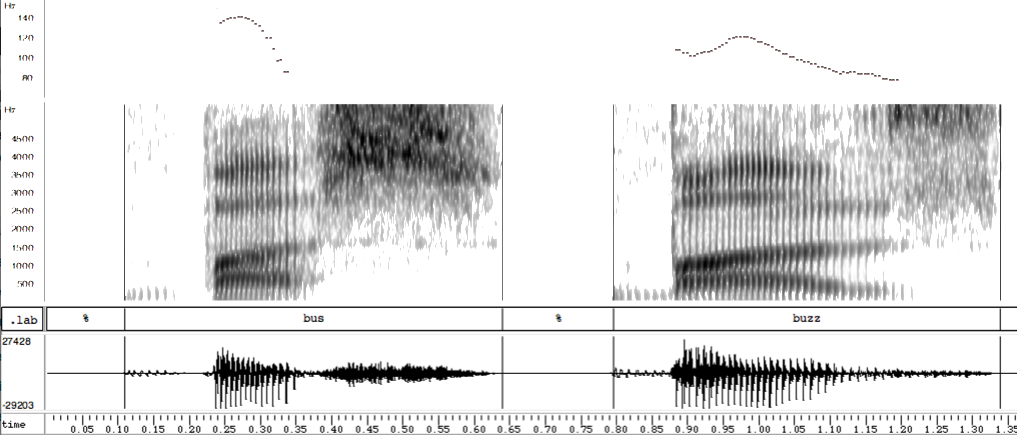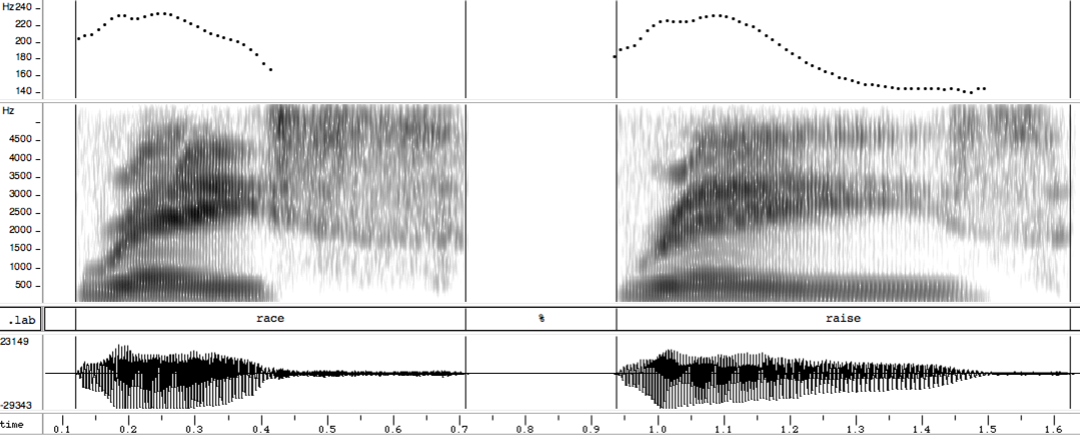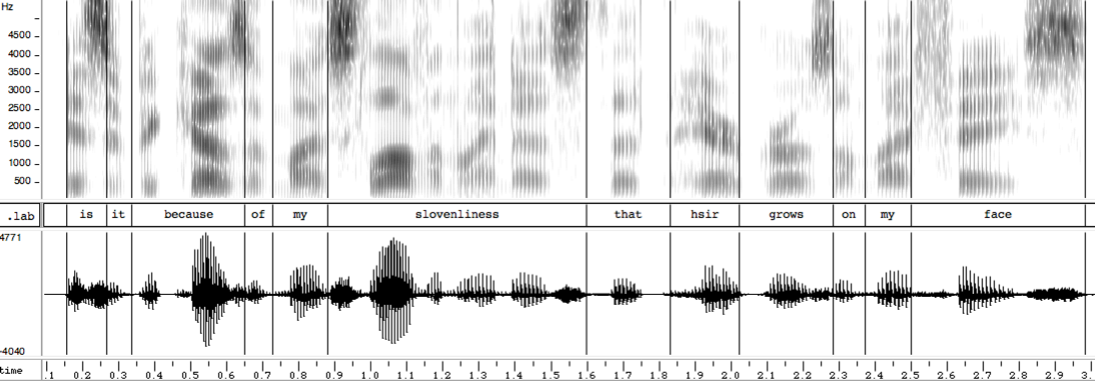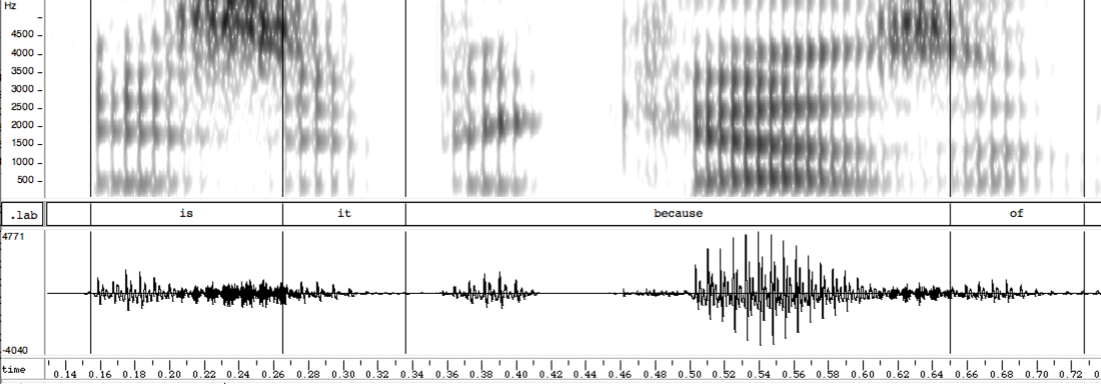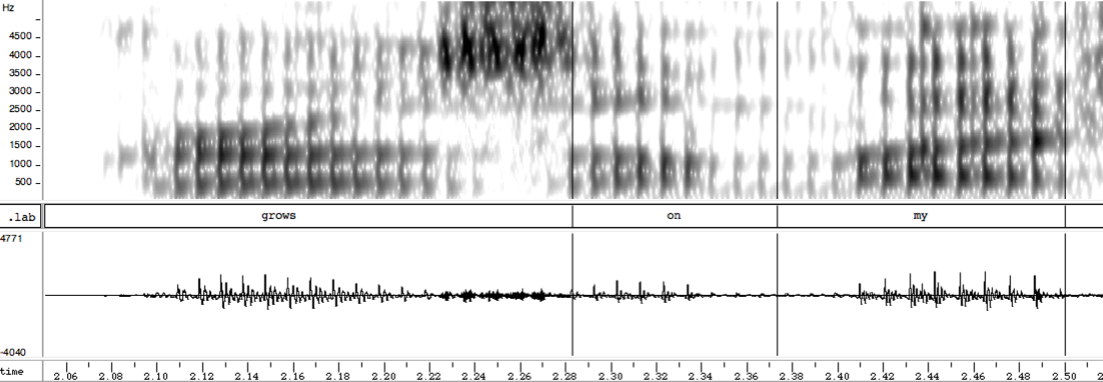bus v. buzz
Language Log 2014-04-02
In a post a couple of days ago ("PSDS", 3/30/2014), I observed that in English, "Syllable-final (and especially phrase-final) /z/ is usually voiceless". In a comment, Mark F. asked
[A]re "buzz" and "biz" just isolated counterexamples to the generalization about syllable-final /z/, or is it generally false for accented syllables? Or do I just think I pronounce the /z/?
The answer depends on what Mark means by "pronounce the /z/". I'd put it this way: in phrase-final position, he probably pronounces the /z/ in buzz, but pronounces it mostly like an [s], even though the difference between bus and buzz remains perfectly clear.
Here are the Merriam-Webster online dictionary pronunciations for bus and buzz. (I've concatenated them artificially — M-W's speaker(s) presumably read them many items apart in a long list of items to be read for use in the dictionary.)
Your browser does not support the audio element.
If we listen just to the last 150 milliseconds of (that pronunciation of) buzz, amplified a bit, it sounds like this:
Your browser does not support the audio element.
And if we listen to everything in buzz up to the point where that s-like section starts, we get
Your browser does not support the audio element.
This is just one example, but it's a typical one. Here's race vs. raise from the same source (but in the voice of a different speaker):
Your browser does not support the audio element.
As before, the main differences between /s/ and /z/ in this context are:
- The vowel before /z/ is much longer.
- The voiceless fricative noise associated with /z/ is shorter and weaker.
- The pitch contour in the /z/-final syllable reaches a low target and stays there for a while.
- There is a short segment of voiced frication in the transition between the vowel and the final /z/, which is slightly longer than the comparable segment in /s/.
Now, English is not a tone language, and so the tonal difference is reliable only in this context, i.e. a phrase-final stress syllable with a falling nuclear accent. Things would be different with given a final rise, or a phrase-medial syllable. And in phrase-medial position before a following vowel, English /z/ might really be [z], pretty much. Here's TEST/DR3/MGLB0/SI1534.wav from the TIMIT corpus — "Is it because of my slovenliness that hair grows on my face?"
Your browser does not support the audio element.
If we zero in on the first few words, we see that the /z/ in "is it" ( = /ˈɪz.ɪt/) is voiced almost all the way through, and similarly the /z/ in "because of" (= /biˈkɔz.əv/):
Likewise the /z/ in "grows on" (= /ˈgroz.ɔn/):
(By the way, this apparently odd choice of example sentence — similar to the finest vintage effle — made its way into the TIMIT collection from p. 100 of Guy Endore's 1961 novel Voltaire! Voltaire!, by way of the Brown Corpus.)
